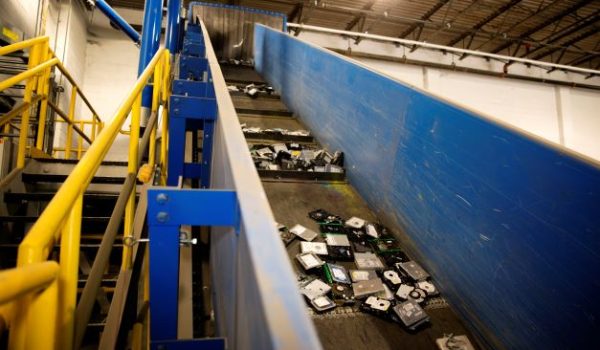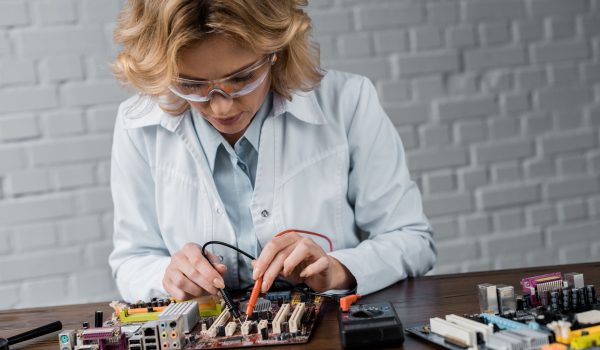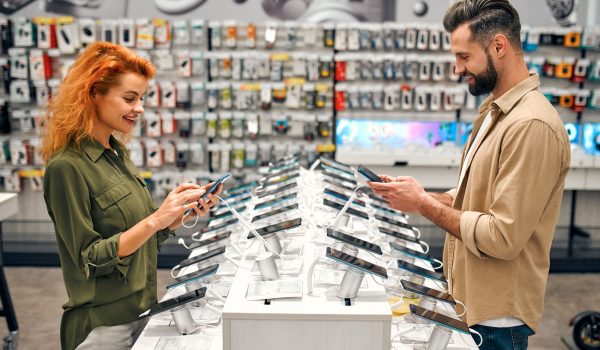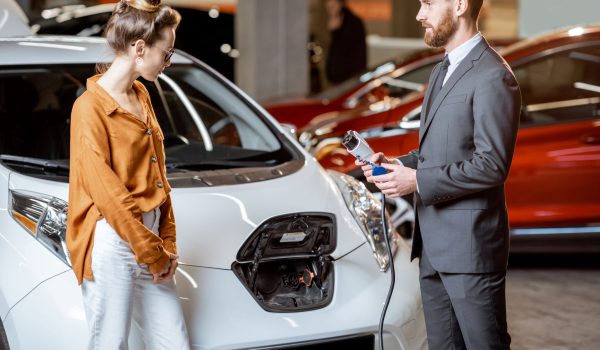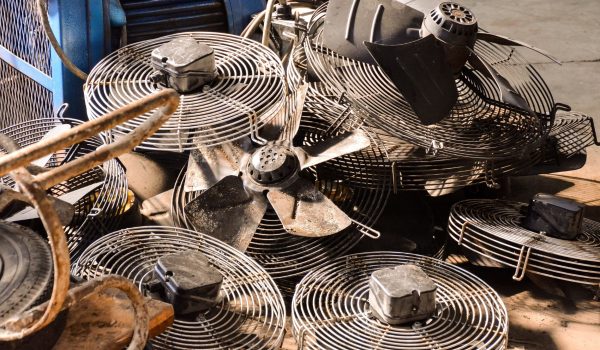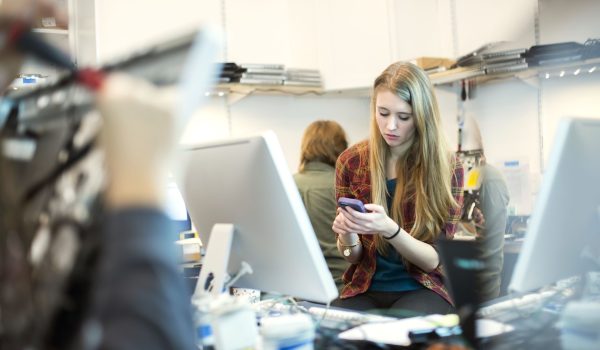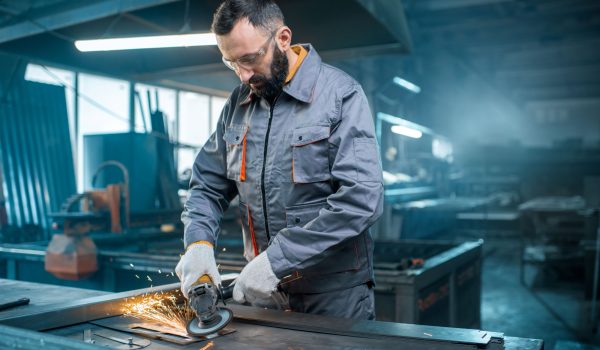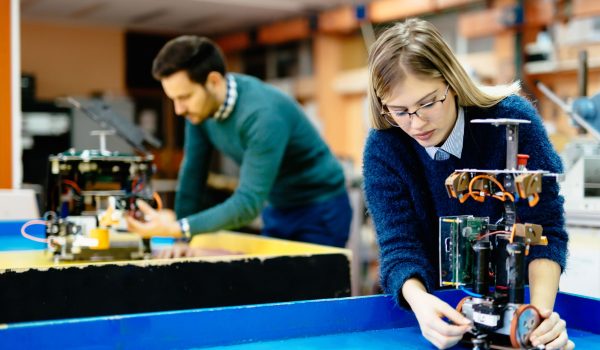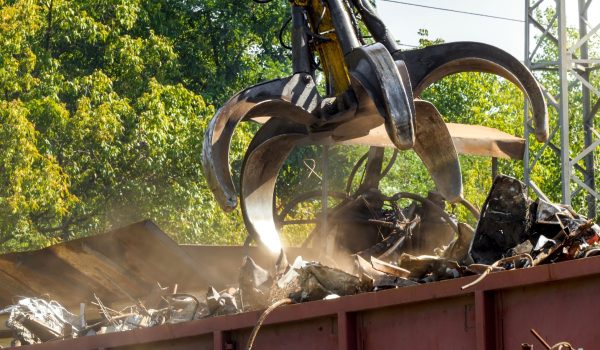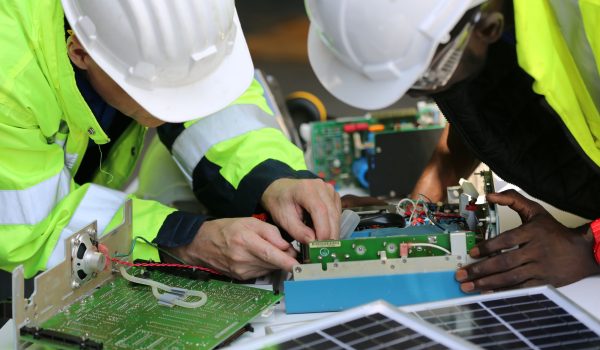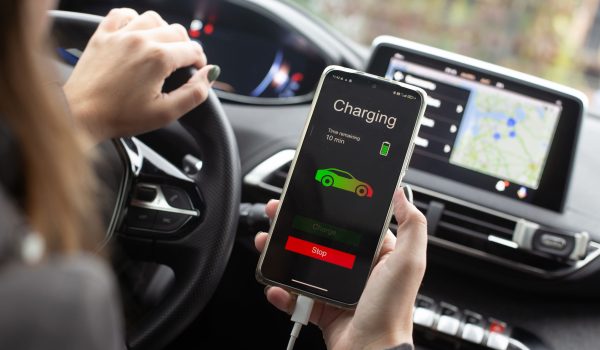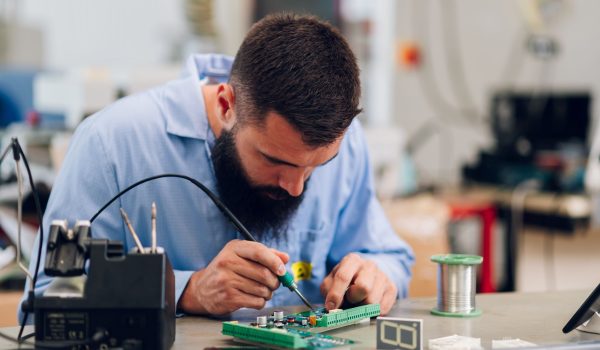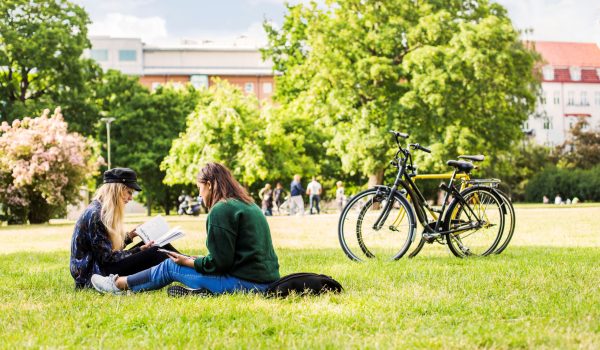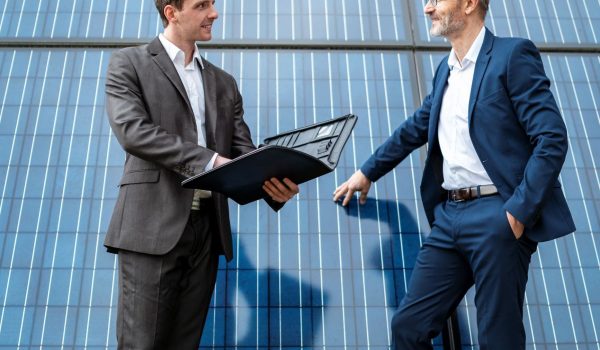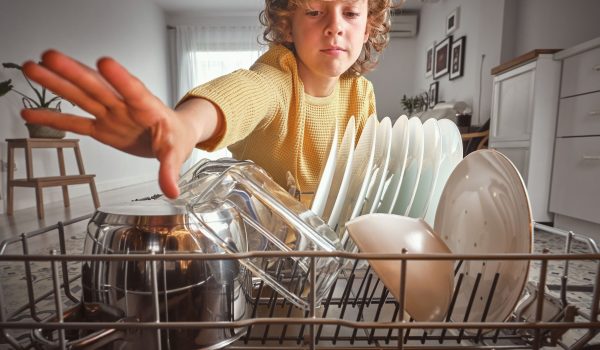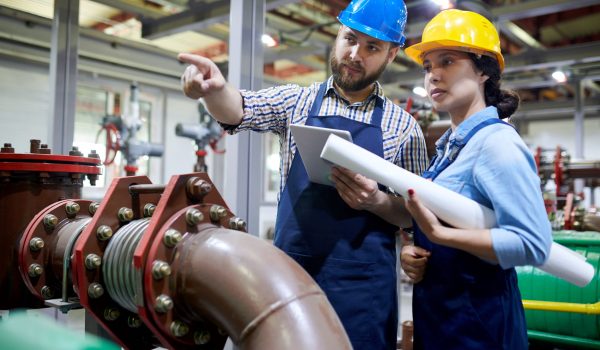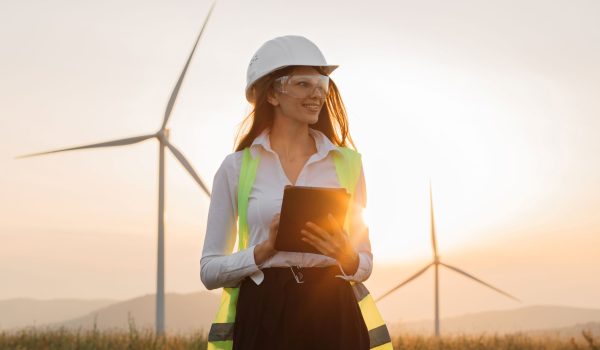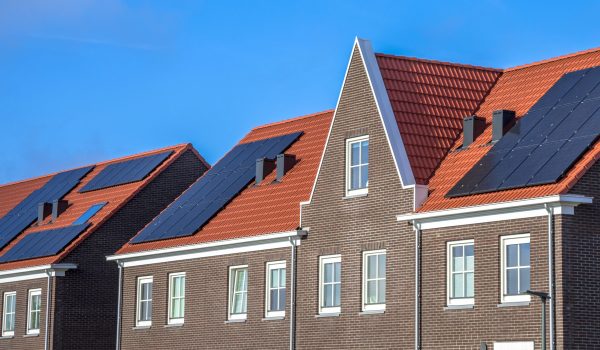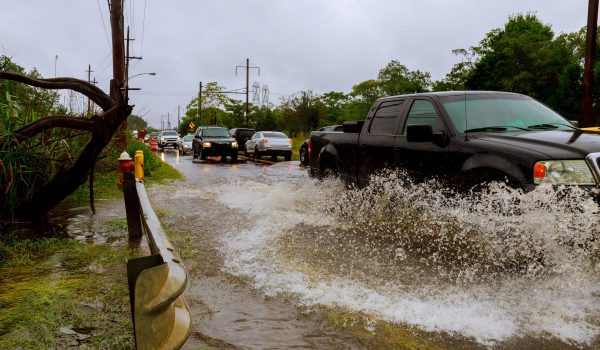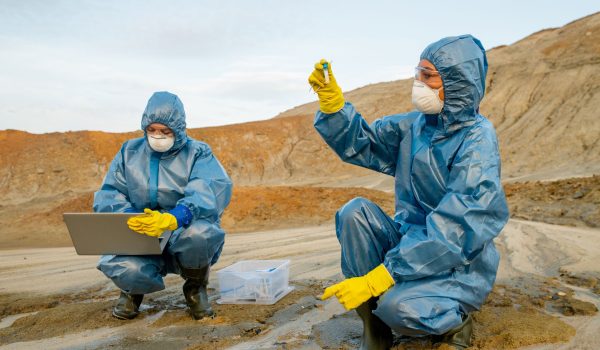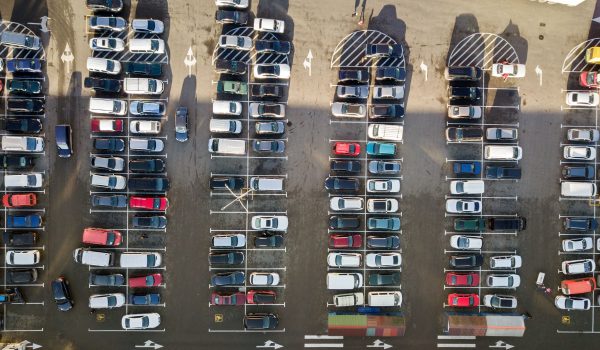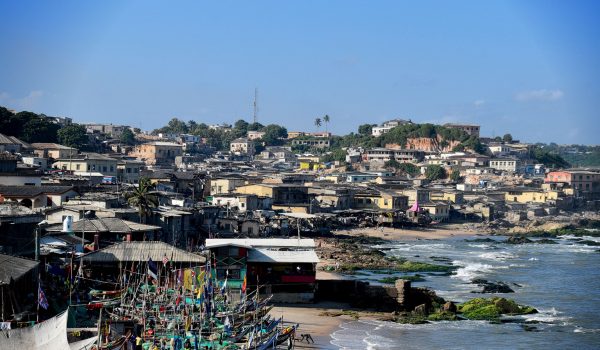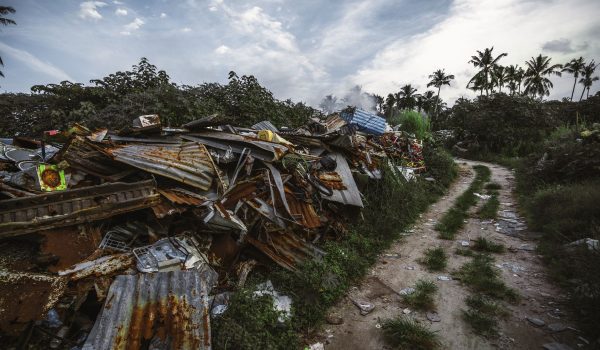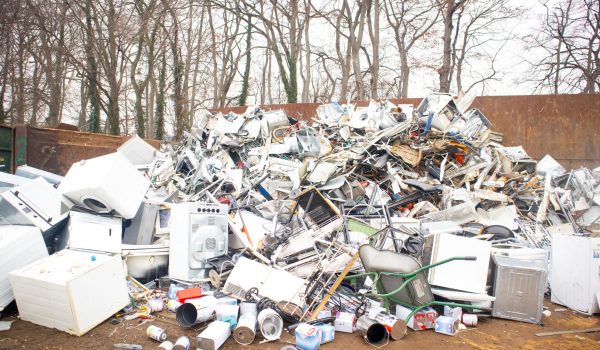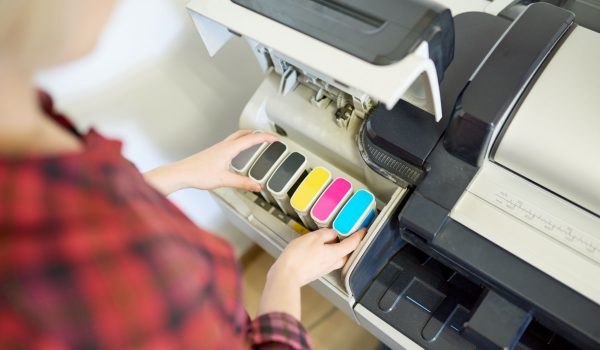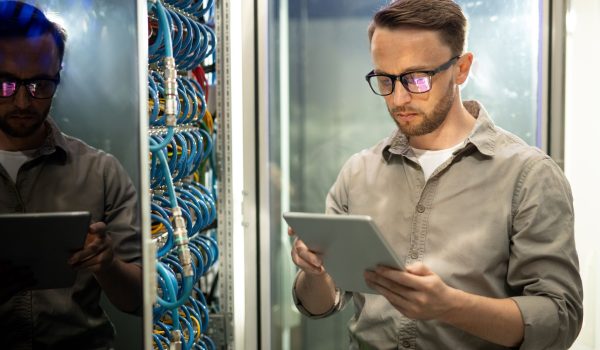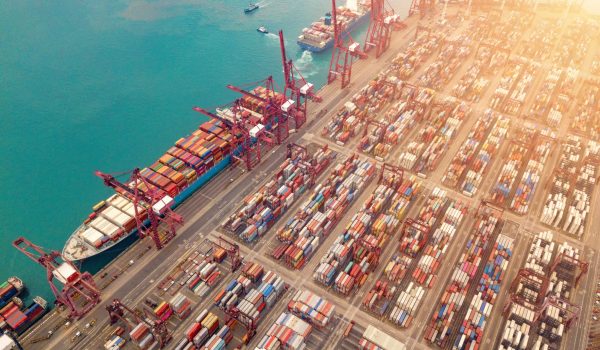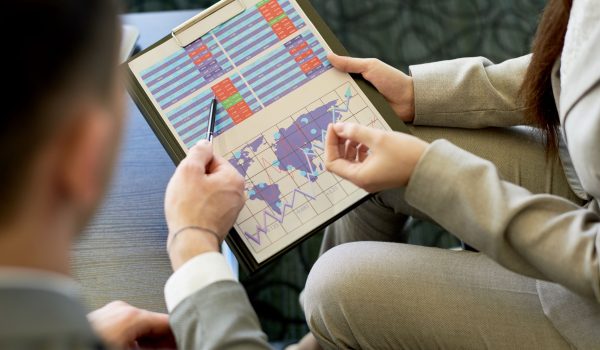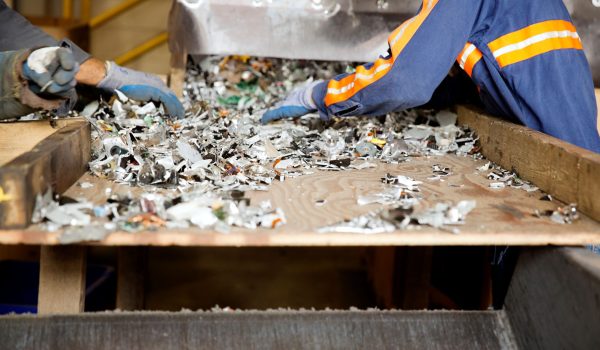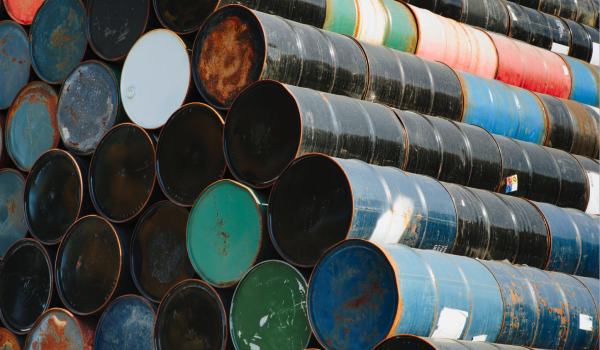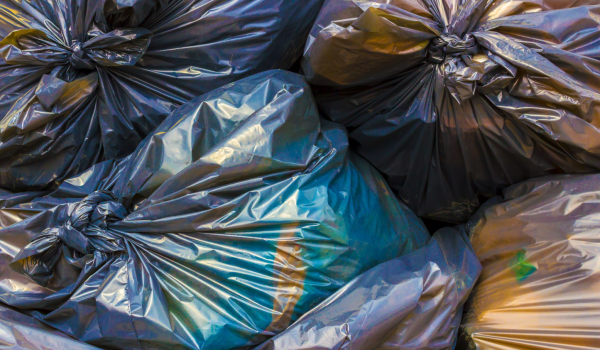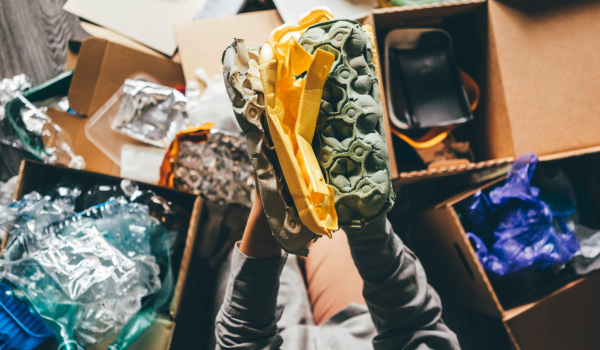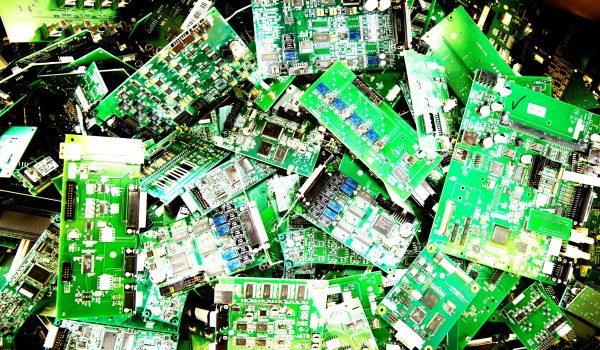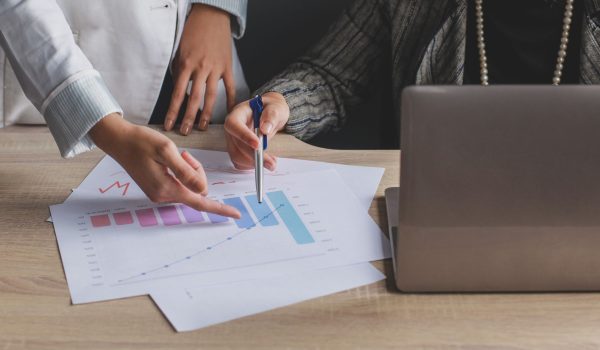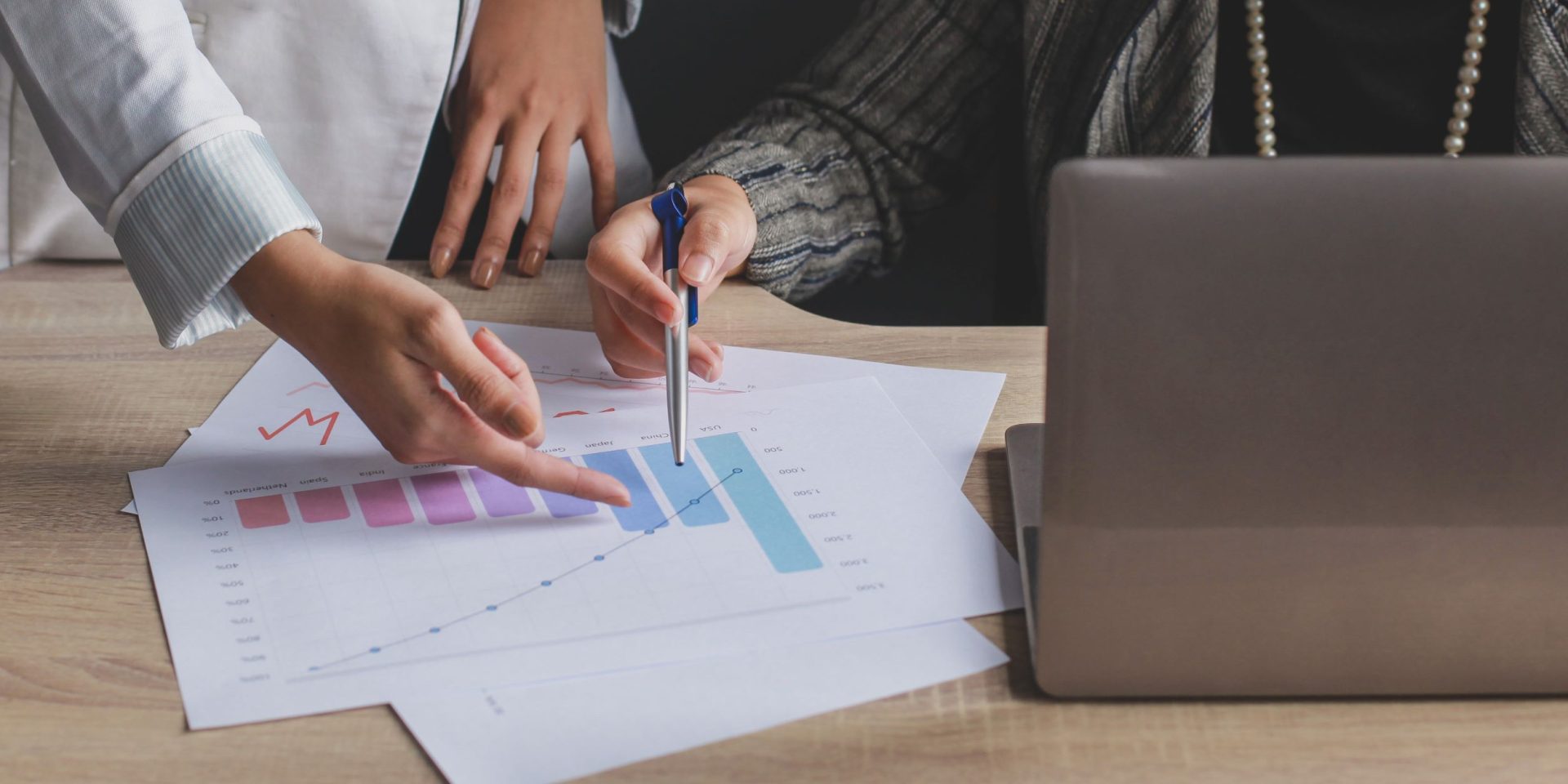
Policy and objectives
Here you can find all publications about policy and objectives for a circular economy. These are mainly publications from national and international governing bodies.
129 onderzoeken in 'Policy and objectives'
The role of extended producer pesponsibility (EPR) in the energy transition
Analysis of the implementation of EPR for batteries in electric vehicles, solar panels, and wind turbines
E-waste in household residual waste
Inventory of the quantity and different types of e-waste in residual waste for 2023
The global e-waste monitor 2024
The global e-waste monitor is the most up-to-date overview of global e-waste data, statistics and progress in policy and regulation.
E-waste in the Metropoolregio Amsterdam
An exploration of the e-waste chain and future logistics scenarios
Critical raw materials in the Dutch Province of Zuid-Holland
The opportunities for the province of Zuid Holland to play a greater role in mineral supply chains
E-waste in the United Kingdom
This report describes how electrical appliances are used and disposed of in the UK.
The circular economy: from nice to have to must have
Bottlenecks and recommendations for accelerating the transition to a circular economy
Exploration of the obligation to sell used goods
Research into the possibility of requiring retailers to offer an increasing share of second-hand products
Benchmark municipalities
Benchmark with a ranking of all Dutch municipalities based on the number of kilograms of electrical waste collected per person
The Netherlands circular in 2050
The 'Netherlands circular in 2050' programme focuses on the development and realisation of a circular economy by 2050.
Monitoring of circularity strategies
Report with principles, backgrounds, applications and examples of circularity strategies and the R-ladder
Impact assessment National Circular Economy Programme
Evaluation and effects of the national policy from the National Circular Economy Programme 2023-2030
National (W)EEE Register report 2022
An annual report from the National (W)EEE Register (NWR) on (waste) electrical and electronic equipment (WEEE)
National (W)EEE Register report 2021
An annual report from the National (W)EEE Register (NWR) on (waste) electrical and electronic equipment (WEEE)
National (W)EEE Register report 2020
An annual report from the National (W)EEE Register (NWR) on (waste) electrical and electronic equipment (WEEE)
National (W)EEE Register report 2019
An annual report from the National (W)EEE Register (NWR) on (waste) electrical and electronic equipment
National (W)EEE Register report
An annual report from the National (W)EEE Register (NWR) to the Ministry of Infrastructure and Water Management on (waste) electrical and electronic equipment
Circular Cities Declaration Report 2024
Report with analyses and an overview of the strategies and actions of circular initiatives in European cities.
Recycling of solar panels
RIVM has detailed four options for recycling the glass, solar cells and back sheets of solar panels.
The case for an EU Circular Material Use Act
Manifesto of the FEAD proposing a Circular Material Use Act
Accelerating the circular economy in Europe
This report gives a comprehensive analysis of how the EU is doing in the transition to a more circular economy
Zero waste cities of the future
Research about how cities can be designed in a way that helps citizens reduce waste.
Reuse by consumers in the Netherlands
This report describes how the number of pieces and mass reuse by consumers was determined for the years 2021 and 2022.
Universally binding declaration for waste management fee for portable batteries
Notification of the universally binding declaration for the waste management fee for portable batteries valid from January 1, 2024, to December 31, 2028
Joint Position on the Revision of WEEE Directive
Joint position of European environmental organisations on a swift revision of the WEEE Directive.
From throw-away society to sustainable, circular production and consumption
In this advisory, The Council for the Environment and Infrastructure (Rli) explores ways to reverse the throwaway trend in our economy.
Challenges for the recycling of spent batteries
By developing policies, applying appropriate recycling technologies and researching new materials, a more effective, environmentally friendly and sustainable recycling of used batteries can be achieved.
Is environmental regulation keeping e-waste under control?
How European Union regulations have affected the exports of e-waste.
Reshaping EPR
Identifies the actions needed to improve the tool of EPR, making it a game changer for circular economy goals.
Repair in the circular economy
This white paper is a collection of interviews with scientists from Leiden University, TU Delft, Erasmus University Rotterdam and Rotterdam University of Applied Sciences
Developments, challenges and opportunities within the e-waste sector
Highlighting developments, challenges and different prospects for e-waste, discussing aspects such as collection, pre-treatment and recycling
European Batteries Regulation 2023
The new European Battery Regulation relates to the availability of European raw materials, (economic) circularity and the sustainability of the entire battery value chain
Universal charger in the EU
The EU wants to promote the use of universal chargers for mobile phones and other portable electronic devices
Do solar panels fit within the WEEE directive?
Position paper in which PV CYCLE argues why solar panels should be excluded from the WEEE directive
EU policy recommendations for increased collection of WEEE
Policy recommendations from the EU for European governments to collect more WEEE
Integration of sustainability at retailers/producers
Needs, opportunities and problems when integrating sustainability into retailers' offerings
Stibat Annual Report 2022
This report contains all important figures regarding the collection of batteries in the Netherlands on behalf of the Batteries Foundation
Costs of raw material extraction from WEEE
How thermodynamic rarity can provide new insights into raw material extraction from discarded electronics
Battery 2030: Resilient, sustainable, and circular
The demand for batteries is growing, and with it the need for better solutions in the value chain
Slow transition to a circular economy in the EU
De Europese Rekenkamer schrijft in dit rapport dat EU-maatregelen voor een circulaire economie niet doeltreffend genoeg zijn geweest omdat EU-financiering vooral is gebruikt voor afvalbeheer
Measuring the possession of electrical and electronic devices in households
Commissioned by the OPEN Foundation, Ffact has conducted research into the ownership of appliances in households.
Monitor Kringloop Nederland 2022
De Monitor Kringloop Nederland brengt cijfers uit de kringloopbranche in kaart met een focus op circulaire, inclusieve en financiële impact
Op weg naar circulaire vermogenselektronica
Hoe het verbeteren van een modulair ontwerp kan bijdragen aan een snellere transitie naar een circulaire economie
Verbeterd monitoringskader voor de circulaire economie
Eurostat heeft monitoringskader voor de circulaire economie in de EU herzien, verbeterd en opnieuw gepubliceerd
Een stap dichter bij biologisch afbreekbare elektronica
De ontwikkeling van een houten transistor die biologisch afbreekbare elektronica, oftewel groene technologie, een stap dichterbij brengt
ILT-rapport over inzameling en verwerking AEEA
De ILT doet onderzoek naar het stelsel van vergunningverlening, toezicht en handhaving op het gebied van e-waste in Nederland
De race om elektrische-voertuig batterijen te decarboniseren
Hoewel elektrische voertuigen schoon zijn vergt de productie van hun batterijen een hoge CO2-uitstoot, toonaangevende fabrikanten zoeken oplossingen om dit te verminderen
Data over informeel e-wastebeheer: de Agbogbloshie schroothoop
Voorstel voor een methode om de hoeveelheden van informele e-wastestromen in kaart te brengen, met de Agbogbloshie schroothoop als casestudy
Het verminderen van de impact van onrechtvaardige e-waste verwerking
Huidige en opkomende trends en bedreigingen van zowel informele als formele e-afvalbeheerpraktijken en eventuele maatregelen en interventies
Hoe ‘circulair’ zijn Nederlandse consumenten?
Hoe 'circulair' Nederlandse consumenten zich nu gedragen, in hoeverre zij bereid zijn daarin te groeien en de potentiële milieuwinst van circulair consumeren
Reflectie op het NPCE 2023-2030
In deze notitie reflecteert het PBL op de betekenis van het Nationaal Programma Circulaire Economie 2023-2030 (NPCE) voor de ambitie van het kabinet om in 2050 volledig circulair te zijn
Oplossingen voor de impact van het laden van elektrische voertuigen
Oplossingen voor de groeiende belasting van het lokale elektriciteitsnet door het laden van elektrische voertuigen
De voordelen van duurzamere elektronica
Hoe maatregelen zoals eco-design en uitgebreide producentenverantwoordelijkheid kunnen helpen om de levensduur van apparaten te verlengen en de impact op het milieu te verminderen
Zeldzame aardmetalen leveren met recycling in de EU
De uitdagingen en kansen bij het ontwikkelen van een toeleveringsketen voor permanente magneten die gebruik maken van zeldzame aardmetalen met behulp van recycling
‘Right to repair’
Briefing met voornemens vanuit de EU om via 'recht op reparatie' reparatiemogelijkheden voor apparaten uit te breiden en aantrekkelijker te maken voor consument en producent
Kinderen en digitale stortplaatsen
De World Health Organization (WHO) rapporteert over de impact van informele stortplaatsen voor e-waste, op de gezondheid en ontwikkeling van kinderen en jonge vrouwen
Beoordeling repareerbaarheid van elektrische en elektronische apparaten
Ontwikkeling van een beoordelingssysteem voor de repareerbaarheid van apparaten op basis van sleutelindicatoren om efficiënter gebruik van materiaal te stimuleren
Innovatie in recycling van afvalstromen met zorgwekkende stoffen
Inventarisatie van zorgwekkende stoffen in afvalstromen en kansen die nieuwe recyclingtechnologie biedt om hiermee om te gaan
Gedragsstrategie burgers en circulaire economie
Langetermijnstrategie en operationele aanpak voor circulair gedrag van burgers ten behoeve van de realisatie van Nederland Circulair in 2050
Urban Mining naar een duurzame toekomst en circulaire economie
Position paper die een beoordeling biedt van de huidge wereldwijde e-waste management systeem, daar aanbevelingen voor doet en eventuele kansen belicht
Competitieve productie van zonne-energie in Europa
Europese bedrijven een werken naar een concurrentiepositie toe in de wereldwijde toeleveringsketen van zonne-energie om zo de energietransitie te versnellen
Elektrisch rijden, personenauto’s en logistiek
TNO en het PBL brengen de ontwikkelingen en onzekerheden op het gebied van elektrisch rijden en de impact die dit kan hebben op het elektriciteitssysteem tot 2030 in kaart
Aankoopgedrag batterij-elektrische voertuigen in Nederland
Inzicht in de toekomst van de overgang naar batterij-elektrische voertuigen aan de hand van marktaandelen en een simulatie van consumptiegedrag
Gids voor het duurzaam beheren van AEEA in de context van opkomende economieën
De belangrijkste factoren voor het verschaffen van duurzaam AEEA-beheer in opkomende economieën mede uit perspectief van meerdere stakeholders
Recycling van kritische grondstoffen in de toekomst
Het eindrapport van het CEWASTE-project dat apparatuur uitzoekt die hoge concentraties kritieke grondstoffen bevatten en nagaat of de terugwinning van kritieke grondstoffen uit die producten haalbaar is met de huidige technologieën.
Een nieuwe circulaire visie voor elektronica
Position paper die kansen en uitdagingen omtrent e-waste uitwerkt en deze analyses gebruikt om een nieuwe circulaire visie voor elektronica voor te stellen
Nationaal Programma Circulaire Economie 2023-2030 (NPCE)
Het NPCE geeft invulling aan de manieren waarop Nederland een circulaire economie wil realiseren tussen 2023 en 2030
Beleidspraktijken voor e-waste management
Een toolkit voor beleidsmakers met eerlijke, inclusieve en economisch haalbare beleidspraktijken om uitgebreide producentenverantwoordelijkheid te bevorderen
Wereldwijde en aanvullende acties voor UPV bij elektronica
Hoe aanvullende acties het huidige UPV-systeem kunnen ondersteunen bij het inzamelen van meer e-waste en suggesties voor zulke acties
De Wereldwijde E-waste Stromen Monitor 2022
Een rapport over de (verwachte) groottes van e-waste afvalstromen en verschillende factoren die leiden tot groei
Integrale Circulaire Economie Rapportage 2023
De Integrale Circulaire Economie Rapportage (ICER 2023) schetst de voortgang van de transitie naar een circulaire economie in Nederland
Implementatie van de circulaire economie in de elektronica sector
Wat de barrières zijn voor circulaire bedrijfsmodellen en welke factoren deze modellen wel mogelijk maken
Op weg naar circulair beheer van e-waste: hoe kan digitalisering helpen?
Wat digitalisering kan bijdragen aan het verduurzamen en optimaliseren van AEEA-afvalbeheer
Een verbeterde definitie van UPV en de rol van alle betrokken partijen
Hoe de uitgangspunten van e-waste inzamelbeleid het beste kunnen worden geactualiseerd
Internet Afval
Position paper over de impact van internet gerelateerde e-waste en factoren die deze afvalstroom doen vergroten
Brandveiligheid bij afvalbedrijven in Nederland
Het in kaart brengen van mogelijke oorzaken van branden bij afvalbedrijven en gerelateerde patronen om de brandveiligheid te verbeteren
Freeriding bij het beheer fotovoltaïsche panelen (zonnepanelen)
Onderzoek naar freeriding-praktijken aanwezig bij het beheer van fotovoltaïsche panelen
Verordening ecologisch ontwerp voor huishoudelijke afwasmachines (vaatwassers)
Door de EU vastgestelde eisen voor het ecologisch ontwerpen van afwasmachines (vaatwassers)
Verordening ecologisch ontwerp voor huishoudelijke was- droogmachines
Door de EU vastgestelde eisen voor het ecologisch ontwerpen van was- en droogmachines
Verhinderingen die kunnen leiden tot systeem lock-ins bij e-waste management
Beschrijving van verschillende factoren die problemen veroorzaken in systemen van e-waste management
Het vergroten van het aanbod betaalbare computers
Het dichten van de digitale kloof door het aanbod van betaalbare computers te vergroten aan de hand van beleidsmaatregelen
De gevolgen van klimaatverandering voor het energiesysteem
Wat het effect is van klimaatverandering op het gebruik van hernieuwbare energiebronnen in twee verschillende scenario’s
Balancing costs and revenues for recycling end-of-life PV panels
What the current solar panel recycling process looks like, and whether this is a sustainable practice in the future
Electronic waste recycling after floods in Jakarta and New Orleans
The potential benefits of recovering and recycling e-waste after floods, based on Jakarta and New Orleans
Regulation on hazardous substances in electrical and electronic equipment
Overview of the rules aimed at restricting the use of certain hazardous substances in electrical and electronic equipment
Spatial effects of the circular economy
A spatial exploration of the consequences of the transition to a circular economy in the Netherlands for five cases
Potential effects of Dutch circular economy strategies on West Africa
The potential positive and negative effects of Dutch measures for a circular economy in low- and middle-income countries
EPR: role and responsibilities of municipalities and collection organizations
Rights and responsibilities of municipalities and their public collection organizations on the one hand and producers/importers on the other hand when implementing the EPR
Environmental impact and health risk assessment of potentially toxic metals from e-waste
Assessment of the environmental impacts and health risks of potentially toxic metals from different activities related to e-waste processing
The circularity gap report: the Netherlands
What the gap is between total circularity and current circularity in the Netherlands and how it can be closed
E-waste in the ICT Sector
The large amount of e-waste generated by the ICT sector and how to deal with it worldwide
Gaining insight into Substances of Very High Concern in a circular economy
Insight into substances of very high concern in the circular economy, how they can be monitored and processed safely
Study on the implementation of product design requirements
How product design requirements are implemented in the EU based on the reusability of printer cartridges
Exploring the sustainability challenges facing digitalization and internet data centers
The environmental impact of internet data centers, analyzed using carbon, water and landscape footprints
Ultimate producer responsibility for e-waste management
Research into the adverse effects of exporting European used electronics and e-waste to Nigeria
Reuse: the understudied circular economy strategy
The amount of 'reuse' in Flanders, its impact and the barriers and opportunities for reuse
Disentangling the worldwide web of e-waste
Mapping the global ecological impact of e-waste and possible measures that can be taken
Evaluatie van de EU Richtlijn AEEA
Bepalen of de Richtlijn AEEA 2012 voldoende actueel is om de milieudoelstellingen te behalen
Study on options for return schemes of small electrical and electronic equipment
Policy measures for action at the EU level to incentivise the return and take-back of small used and waste EEE
Voeg jouw publicatie toe aan de kennisbank
Do you have a publication* that contributes to knowledge about the circular economy, electrical appliances or e-waste? Register it at the knowledge platform!
*Criteria apply. Read more about the submission criteria here.












